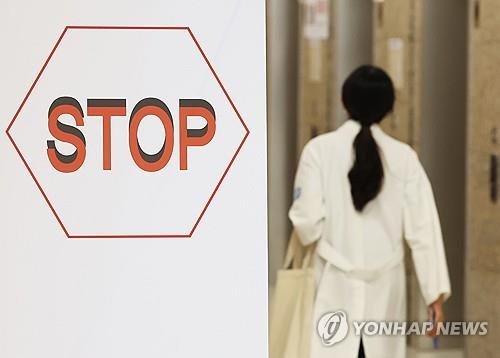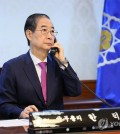- California Assembly OKs highest minimum wage in nation
- S. Korea unveils first graphic cigarette warnings
- US joins with South Korea, Japan in bid to deter North Korea
- LPGA golfer Chun In-gee finally back in action
- S. Korea won’t be top seed in final World Cup qualification round
- US men’s soccer misses 2nd straight Olympics
- US back on track in qualifying with 4-0 win over Guatemala
- High-intensity workout injuries spawn cottage industry
- CDC expands range of Zika mosquitoes into parts of Northeast
- Who knew? ‘The Walking Dead’ is helping families connect
Medical professors at Seoul Nat’l Univ. hospitals to end indefinite walkout
Medical professors serving as senior doctors at Seoul National University Hospital (SNUH) and its affiliates decided Friday to end an indefinite walkout, saying they could not put patients at risk any more, officials said.
On Monday, senior doctors at SNUH in Seoul and its three affiliates began an indefinite walkout in protest against the government’s increase of the medical school admissions quota.
Around 530 senior doctors there, or 54.8 percent of the total, have joined the collective action, though emergency rooms and treatments for critically ill patients have remained unaffected.
Holding a vote on whether to continue the walkout through next week, 73.6 percent of 948 professors said they should halt the operations suspension and seek a “sustainable way of protest,” according to its emergency response committee.
Some 20.3 percent voted for continuing the walkout.

“We cannot turn our backs on patients anymore. The decision to end the strike does not mean that we accept the government’s immature policies,” a committee official said.
“We will continue to fight against the government and will take active action again if its irresponsible decision causes greater threats to the people’s right to health,” the official added.
The operation of the hospitals is expected to return to normal Monday.
More than seven out of the SNU hospital professors called for doctors’ active participation over the course of the government’s medical reform plans, and 65.6 percent pointed to the need to adjust their working hours “to a sustainable level” to ensure the safety of both patients and medical staff.
Public outcry has mounted over the strike as patients have suffered from a monthslong medical service vacuum over junior doctors’ walkout since late February against the increase in the quota.
Some community doctors affiliated with the Korean Medical Association (KMA) held a one-day strike Tuesday, and the KMA, a main doctors’ lobby group, has threatened to launch an indefinite strike next week to press the government further.











